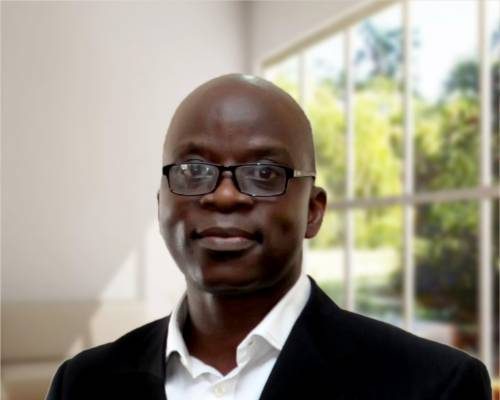Good morning, distinguished media scholars, my colleagues in the noble profession of journalism, ladies and gentlemen. Let me begin by thanking the Executive Director of the International Press Centre, IPC, Comrade Lanre Arogundade and the President of the Association of Communication Scholars & Professionals of Nigeria (ACPSN), my teacher, Professor Rotimi Olatunji, for asking me to chair this important event. I feel honoured.
Let me place on record that I am neither a scholar nor a very active professional journalist.
Perhaps the reason for my invitation is the fact that I have been variously described as a journalist on vacation and a PH.D dropout.
But let me say how happy I am to rub minds with professional colleagues and the academic community on the continuing disruption of journalism practice. It is important to stress that today’s event is the IPC and ACPSN’s contribution to the World Press Freedom Day, marked on May 3rd every year.
Before I delve into today’s topic of discussion, please permit me to share with you a statement on the state of the media and by extension, press freedom by the Executive Director of the International Press Institute, Scott Griffen, to mark World Press Freedom Day. I think it is relevant to our discussion today.
I quote: “Press freedom is under great strain globally, amid rising authoritarianism and weakening commitments to human rights. Journalism and journalists are under tremendous pressure in nearly every country and every region of the world. From physical harm to legal threats to market pressures, the work of journalists has become increasingly more difficult and increasingly more dangerous. At the same time, the need for strong, independent journalism has become even more critical: from bringing us accurate news and information from the front lines of conflict to shedding light on corruption, crime and abuses of power – the need for robust, independent, public-interest journalism is greater than ever.”
The IPI chief executive forgot to add the threat from Artificial Intelligence. If you ask me, I would say, AI is a necessary evil. Perhaps we need to remind ourselves that the World Press Freedom Day is a day set aside to reflect on the role and importance of a free and independent media. It is also a day to celebrate and honour the great journalists who played great roles in expanding the frontiers of free speech and holding public office holders to account, in defence of democracy.
Also Read
- 10 suspects remanded for alleged rape of disabled girl in Kaduna
- NIHOTOUR DG champions smart, inclusive tourism at Europe-Africa Investment Summit in Athens
- Take charge of loan scheme, NELFUND urges student leaders
- Supreme Court Judgement: INEC reinstates LP’s Abure, PDP’s Anyanwu names on website
- NORD motors gifts Tunde Onakoya new A9 SUV, extends ambassadorial role + Pictures
I am happy to report that one of them, Dapo Olorunyomi, Publisher of the Premium Times, was honoured on Sunday with the HLF Christopher Kolade award for excellence in Leadership and Professionalism in Nigeria.
Before I go further, I wish to congratulate the IPC chief executive, Lanre Arogundade, on the removal of his name from the Department of State Service’s watchlist, after more than 40 years. We can only hope that the DSS action marks the beginning of a new era in its relationship with the media and civil society.
Journalists are yet to recover from the effects of the disruptions of the new media to their profession and their age old business model, only to be confronted, perhaps by a bigger disruptor: ARTIFICIAL INTELLIGENCE! Artificial Intelligence technologies have been integrated into various professions and aspects of life. Journalism cannot be an exception.
Accountants talk of profit and loss. Like in every endeavour, there are advantages and disadvantages of the integration of AI into journalism. To use the modern lingo, there are opportunities and challenges in the use of AI in journalism.
How do we as journalists respond to the challenges? Is there a link between AI, Press freedom, disinformation, and censorship? Are there benefits to be derived from AI?
What are the safety concerns for journalists in an A1-driven world? Shouldn’t an AI-driven ecosystem be regulated by law?
These and many more will be interrogated by Dr. Monday Ashibogwu and Dr. Ganiyat Tijani-Adenle in their papers. While Dr. Ashibogwu will take us through the connection between AI, Media and Press Freedom, Dr. Tijani-Adenle will discuss the agitation on the safety of journalists in an AI- driven world.
Finally, there will be a round table where all stakeholders will proffer ideas on how to navigate the AI ecosystem. I look forward to these sessions and I am positive that they will be enriching. Once again, I welcome you all.
Thank you!


